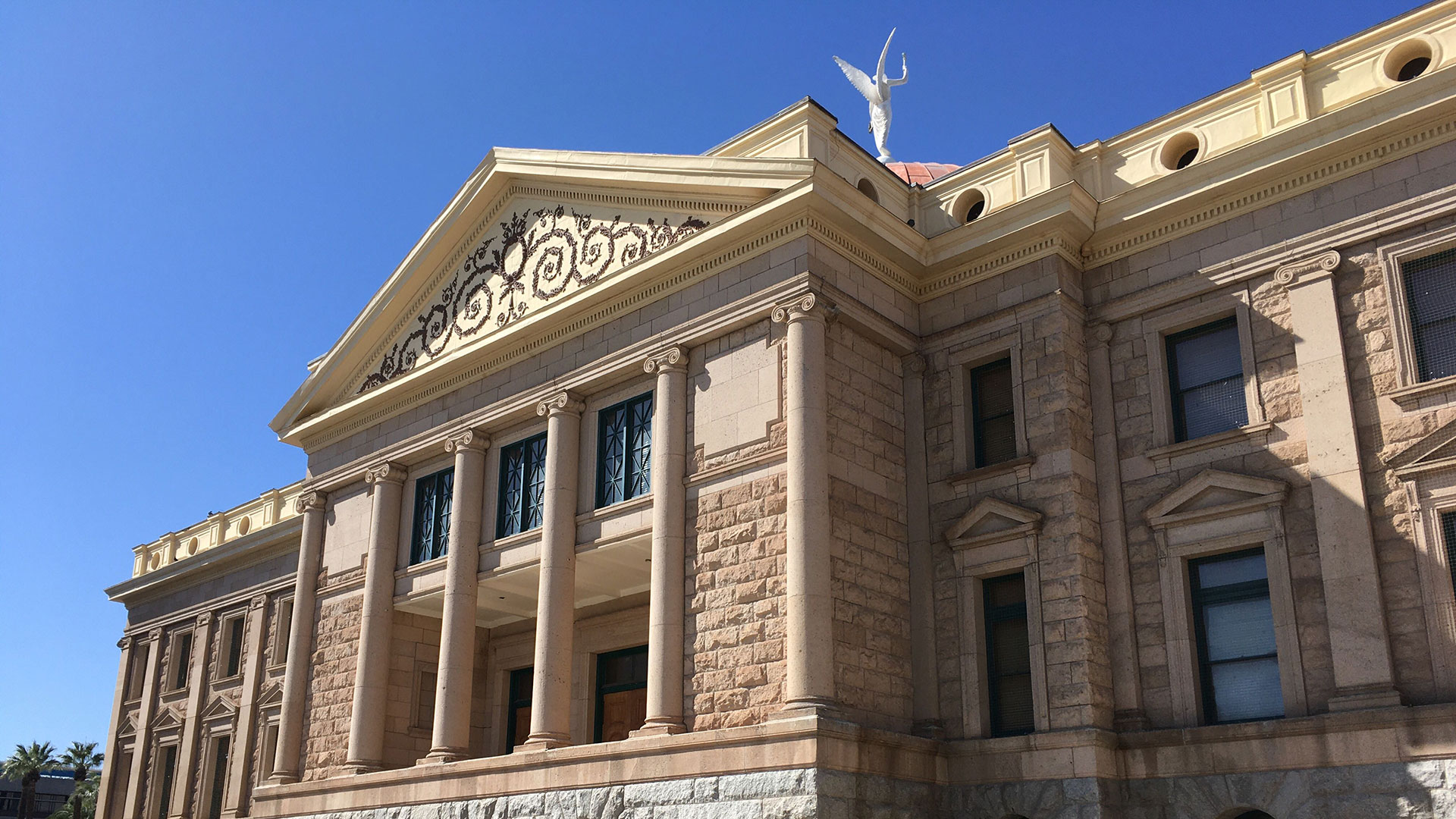 The Arizona state Capitol on March 3, 2020.
The Arizona state Capitol on March 3, 2020.
The Buzz for June 28, 2024

Arizona's next fiscal year begins on Monday, and with it will come a slew of changes to the funding of various state entities.
The $16.1 billion budget deals with a nearly $2 billion deficit that was forecasted by the Joint Legislative Budget Committee.
Finding ways around that shortfall was a challenge for Governor Katie Hobbs and Republican leaders in the state legislature, and their solutions have raised the ire of some.
AZPM reached out to Hobbs' office for an interview on these critiques, but the request was declined.
Chief among the budget's critics is Arizona Attorney General Kris Mayes. On June 20, her office asked for a temporary restraining order related to a move that would transfer $115 million of opioid settlement money to the Department of Corrections, Rehabilitation and Reentry.
"I believe this was a budget gimmick, this was nothing less than an effort to backfill the budget of the Department of Corrections. And I think it's wrong. We're very disappointed in the decision of the judge in the case, obviously, we've got to abide by it. But it basically allows for them to take these precious funds that were meant to save Arizonans' lives and use it in a way that I think was inappropriate," Mayes said.
That restraining order was granted on June 20, then dissolved on June 24. The judge wrote that Mayes needed to show that the money had been spent outside of the settlement agreement before it could be pulled from DCRR.
"Intend to watch like a hawk, how the Department of Corrections uses this money. Their lawyers, the governor's lawyer and the lawyer for the legislature told the judge yesterday that they promised to use every cent of it on opioid addiction treatment and approved purposes, and they'd had better live up to that."
A different objection came from Arizona's Water Infrastructure Finance Authority. The group gained prominence in 2022 when then-governor Doug Ducey promised it more than $1 billion over three years.
Two of those three years have seen the promise to give the authority that much money so it can invest in projects that conserve water or find new sources not met. The total received by WIFA is around $443 million.
That led WIFA to issue a statement calling the cuts "remarkably short-sighted."
"They are strong words and they're words that are targeted at the massive cut that was made to the fund, specifically dedicated to Arizona's long term water security. In 2022, the state legislature then passed with overwhelmingly bipartisan support a revamp to the Water Infrastructure Finance Authority. And that revamp came because of and including a commitment to investing in finding the next new water source for Arizona," said WIFA Assistant Director Chelsea McGuire.
McGuire said she is less concerned about the overall amount of money that WIFA has for projects, but is more concerned by the message the consecutive cuts in funding sends.
"It really is about that trend. It's about the fact that it's now been two years in a row that the state has looked to this long term water augmentation fund to, in 2023, fund some other water projects that objectively were not bad water projects, but were not meant to contribute to that long term new water source. And then in 2024 cutting that to balance the budget and to make those conversations a little bit easier. It's that trend that's going to be really hard for us to go out to the market with a straight face and say, the state of Arizona remains committed to this project, the state of Arizona remains committed to bringing in this new water source," she said.
Other groups have expressed concern not so much about cuts to their budget, but rather about how money for certain causes is allocated.
Save Our Schools Arizona called the budget "a slap in the face." Its largest concern was that the only change to the state's Empowerment Scholarship Account system is a requirement that private schools that receive ESA funds perform background checks and fingerprint employees.
"The fact that the budget was balanced on higher ed, K-12 [education], water, roads, the things that all of us really, really need, all of those things were slashed and vouchers were hardly touched. And we know that the new universal voucher program is driving half of the state's budget deficit. So it does make sense that if a program is causing the deficit, we should probably look at cutting that before we cut services for everyday Arizonans," said SOSAZ's director Beth Lewis.
Lewis said that, despite this budget being bipartisan, she was told that the driving force behind the inaction around ESA vouchers was the legislature's Republican members, who put the expanded system in place in 2022.
"There were Democrats who were basically told, if you don't vote for this one, the Republicans are going to come back next week with a worse budget. And, honestly, for folks outside of the Capitol space that might sound dramatic or unrealistic. But as somebody who's down there a lot like that is exactly the state of play down there."



By submitting your comments, you hereby give AZPM the right to post your comments and potentially use them in any other form of media operated by this institution.